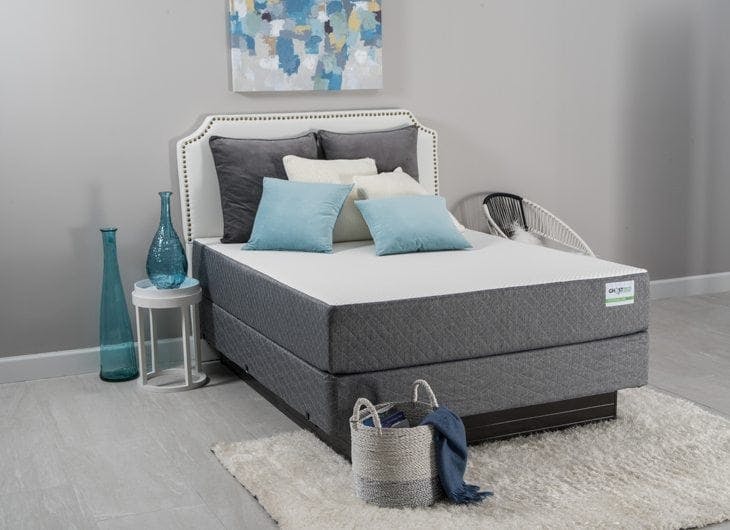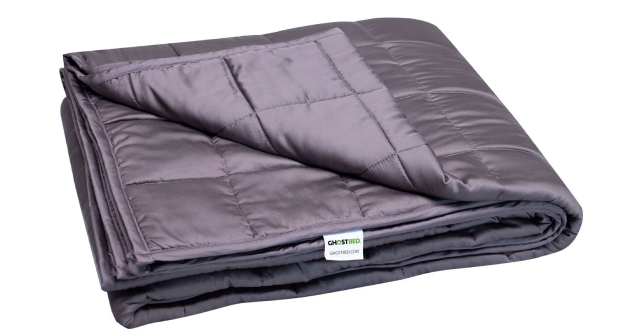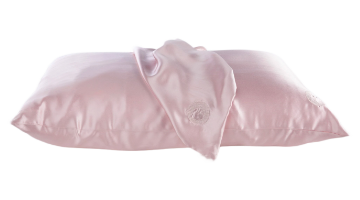How Long Does a Mattress Last?
Last Updated on March 22, 2025
by Marc Werner, Founder - GhostBed
Spending one third of a lifetime in bed begs the question, “How long does a mattress last”? Although there is no specific formulation in which to determine how long each mattress will hold up, if a bed is showing wear and tear it is certainly time to buy a replacement. Materials that the bed is crafted with can also determine a mattress’ lifespan.
Experts note that one should replace a mattress every 10 years but most people hold out for longer. With prices of a new mattress sometimes being as much as thousands of dollars, it is important to take care of maintaining your mattress. This will allow you to utilize the bed to its full capacity until the end of its life.

Determining Factors
Several factors can help determine the answer to the question of, “How long does a mattress last”? Note that experts state that, at the most, all should replace a mattress after 10 years, with those over 40 replacing their mattress after 7 years. Beyond the age of the mattress, it is important to watch out for signs of wear that may be putting the ache in your back.
I: Is Your Bed Comfortable?
II: Does Your Bed Have Support?
III: How is the Hygiene of the Mattress?
IV: What Type of Mattress do you have?
V: Is it Time for a New Mattress
I: Is Your Bed Comfortable?
Comfort is a key the determining factor of deciding it is time for a new mattress. If you are no longer comfortable in your own bed and long for a night in a hotel room, then something is certainly wrong with your mattress. There are key signs to look out for to notice if your sleep comfort is being interrupted by an old mattress.
- Take an account of how often your sleep disturbed.
If you find yourself excessively tossing and turning, waking yourself up, it could be due to a mattress that has outlived its comfort abilities.
- Are you feeling more aches when waking up from the bed, then when you went to sleep?
This is certainly a cautionary warning that your mattress is no longer performing to provide you with the comfortable sleep needed.
II: Does Your Bed Have Enough Support
If a mattress no longer can support the body properly it most definitely is time for you to say farewell to it. Support is crucial to good nights of sleep leading to productive, and ache free, days.
- Note if your mattress has any lumps, bumps, and sagging.
If you are rolling towards the center of the bed, then it is a certain sign that your mattress should be tossed and replaced. Mattresses are also not supposed to be lumpy so if you have a bump inside the bedding poking you every time you try to sleep this is a determining factor shouting at you to get a new mattress.
- Do you hear creaking other than old bones?
So, every time you move in bed you hear a creaking sound that makes you feel as if the mattress may just break into pieces. Obviously, your bed is shouting at you to be replaced. Like sitting on an old wooden chair one too many times, causing it to break from under you, the mattress is doing the same thing with each creak. As memory foam does not need a wood frame, this is a sign if you are still sleeping on an inner spring mattress that is built with a wooden frame inside.
III: How is the Hygiene of the Mattress
The hygiene of a mattress is an important determining factor as to if the mattress should be replaced. If normal maintenance is no longer keeping the mattress in its best shape, then it means your mattress can actually be making you sick. This is certainly cause telling you to buy a new mattress.
- Is the bed surface and its seams hiding dirt and dust?
Evil can lurk in hidden crevices. When cleaning mattresses it is imperative to take special care to clean each seam. Dirt and dust can sit in the seams of a mattress. Oil and residue from the body and skin can build up on the bed’s surface over the years. If it gets excessive and cannot be properly cleaned out anymore then you need a new mattress.
- Does sneezing and coughing disturb your sleep?
If you are finding that you are only sneezing and coughing while trying to sleep, and not during the waking hours, then it could be because your bed has become a breeding ground for allergens. Dust mites and mold can creep below the surface as well as cause nightmares for those attempting to get a good night of sleep. At some point, cleaning may not be able to rid the mattress of the allergens anymore. When the time comes, the sneezing and coughing will be the tail tell sign that it is time for a new mattress.
IV: What Type of Mattress Do You Have
Different types of mattresses will last longer than others. It is important to note that the type is not the only factor to determine the lifespan of your mattress. You must maintain the mattress in order to get the most from its life that it can give to you.
Innerspring
These are the traditional mattresses made with innersprings tied down within a frame of wood and then covered with a cushioned fabric. These are the mattresses that will sag and get bumpy with time as the metal innersprings wear down with age. The mattresses that do not have an extra pillow top for comfort require not only rotating but also flipping for regular maintenance.
The pillow tops add extra comfort but also be aware that they need extra care for cleaning deep seams and crevices. Generally, with the proper care, the innerspring mattress will live a full life of about 7 – 8 years.
Memory Foam
Memory foam is now the most common choice of mattress. These are comfortable for their conforming to the body. Newer memory foam mattresses also have cooling abilities that lend to better sleep. With no need for inner springs, these mattresses are less likely to have sagging problems, but can lose support as the foam ages.
These mattresses have a definite top and bottom but still should be rotated for regular maintenance, as well as consistent cleaning. Memory foam mattresses can last 10 years or longer with proper upkeep.
Latex
Latex is often used as a layer along with other mattress properties, such as memory foam, cotton, or wool. Latex is a natural foam made from the rubber plant. It is known for its longevity as well as its hypoallergenic and anti-microbial factors. With proper care, a latex bed can last for about 15 years.
Air
An air mattress is generally meant as a temporary mattress but there are hybrids and better quality ones that people will sleep on regularly. Be aware that an air mattress will probably develop leaks over time that will affect the firmness and comfort of the bed. Pumps can also break down and cause problems with filling of air. With proper care a good air mattress can last up to about 5 years.
Water
Depending on the type of water bed and quality of vinyl covering are factors in determining how long these types of mattresses will last. Proper care and using conditioner to keep the vinyl cover clean and durable is key in extending the life of a water bed mattress. Although many companies state that their water beds will live up to 10 – 15 years, the average life of a water bed is 8 – 10 years before chronic leaking begins.
V: Is it Time for a New Mattress?
The most important factors in determining how long does a mattress last is to maintain proper upkeep and to take notice especially when a mattress starts to give hints of not doing its job properly. Ultimately, it is best to replace a mattress every 7 – 10 years for the best and most healthful rest possible. Sleep is vital to health; therefore, your new mattress should be the most important piece of furniture that you will invest in.
Marc has spent the last two decades designing & manufacturing mattresses and other sleep products, drawing on a lifetime of experience working with the material sciences. With several patents to his name, he works closely with the GhostBed team to create products with the perfect balance of comfort & support. Learn More




